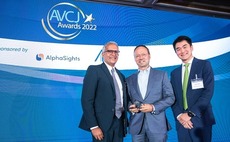
All about Korea
More than 10 years and a host of bank turnarounds and corporate restructurings ago, South Korea was Asia’s most active private equity market. According to AVCJ Research, $3.1 billion was deployed in the country in 2000, comfortably ahead of second-placed Japan.
Korea has yet to reclaim top spot and its chances of doing so appear slim, given the size and evolution of neighboring economies. First Japan rose to prominence in the early 2000s and by the mid...
Latest News
Asian GPs slow implementation of ESG policies - survey
Asia-based private equity firms are assigning more dedicated resources to environment, social, and governance (ESG) programmes, but policy changes have slowed in the past 12 months, in part due to concerns raised internally and by LPs, according to a...
Singapore fintech start-up LXA gets $10m seed round
New Enterprise Associates (NEA) has led a USD 10m seed round for Singapore’s LXA, a financial technology start-up launched by a former Asia senior executive at The Blackstone Group.
India's InCred announces $60m round, claims unicorn status
Indian non-bank lender InCred Financial Services said it has received INR 5bn (USD 60m) at a valuation of at least USD 1bn from unnamed investors including “a global private equity fund.”
Insight leads $50m round for Australia's Roller
Insight Partners has led a USD 50m round for Australia’s Roller, a venue management software provider specializing in family fun parks.








